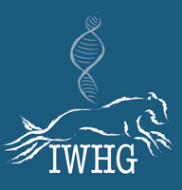
KC Accredited Breeder Scheme
There have been many concerns within the Wolfhound community about different aspects of the Accredited Breeders Scheme. In order to air these concerns and to hear the views of the Kennel Club, the group invited Mr Bill Lambert to a meeting in November 2008 in Coleshill, Warwickshire. There were about 20 attendees, the group members, plus officers from the committees of the three clubs. Mr Lambert was joined by Diana Brooks Ward, KC Health Coordinator.
Mr Lambert took us through the workings of the ABS, explaining the benefits and dealing with the most frequent criticisms of the scheme. There followed many questions and contributions from the floor including the following:
Whilst understanding the KC’s wish to have a scheme that encourages best practice in breeding across the board, both for the welfare of the dogs and the prospective owners, our own code of conduct already sets out what we consider to be the minimum of best practice within our own breed, which is, in fact, more stringent and specific than the ABS. This is especially so as most of us breed infrequently and would not meet some of the criteria set out in the ABS Accolades – and these are often the people of longstanding and high regard in the breed.
One of our concerns was that the ABS does not discriminate against puppy farmers and we would like more stringent qualifying criteria. We would like Irish Wolfhound ABS members to be FULL members of one of the IW breed Club/Societies, which would mean they had been in the breed for a minimum of three years, have been proposed and seconded by existing members, be known to the breed in some way and also, be likely to be being mentored by the breeder of their bitch/stud dog.
Regarding the Health Requirements and Recommendations for membership of the ABS, it was pointed out (not for the first time by the group) that eye testing for PRA should not be a requirement as the incidence is very low due to the fact that the carrier lines are known to us. The group feels that it would be sufficient to have it as a "recommendation if carrier lines are in the pedigree" as testing alone does not indicate if a dog is a carrier and breeders need to be encouraged to check for carrier lines in their breeding programme.
In the case of testing for elbow dysplasia, which is a recommendation, it was proposed, once again, that this should be removed completely, as we believe the incidence is negligible in the breed in this country, and the risks of the associated anaesthetic outweigh any possible benefit.
Testing for liver shunt we would be happy to leave as a breed club recommendation, on the assumption that the breed clubs' own codes of conduct and membership criteria would be met within the ABS scheme.
And lastly, the group felt that heart testing should be added as a breed club recommendation, with annual screening of breeding stock as set out in the breed's own scheme and code of conduct. Currently the ABS has no reference to heart testing.
The meeting covered a lot ground concerning ABS issues, and ended with the general feeling that the opinions of the group had been fully expressed, and taken on board by Mr Lambert and Ms Brooks Ward.
The meeting was followed up with a detailed letter to the KC, outlining the group's position.




